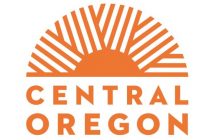The U.S. economy is “short” $2 trillion. This money is sitting idle in bank accounts instead of stimulating the economy with consumer spending and investments. In the five years since the end of the Great Recession, consumers incrementally increased bank savings by about $2 trillion relative to GDP compared to the five years prior to the Great Recession.
As a result, bank savings, as percentage of GDP, grew from 45.5 percent prior to the recession to 54.7 percent after the recession – an incremental increase of nearly $2 trillion.
When the amount of bank savings, as percentage of GDP, is growing, it means that less money is available for spending and investment. Since nearly 80 percent of the economy, or GDP, is made up of consumer spending and investments, the economy stagnates when consumers divert more of their disposable income to bank savings. Had consumers kept their bank savings at the same pace as they did prior to the Great Recession, the U.S. economy, or GDP, should have been nearly $2 trillion bigger today – $19 trillion as oppose to about $17 trillion currently.
In order for the economy to pick up steam, the $2 trillion in excess savings needs to be diverted back to spending and investment, which will bring the amount of bank savings to its pre-recession level of about 45 percent of GDP.
However, for this to happened, consumers need to have a lower level of money anxiety. Prior to the Great Recession, the five-year average for the Money Anxiety Index stood at 58.6 – 13 points lower than its current level of 71.6.
Dr. Dan Geller
Behavioral Finance
Money Anxiety
415-492-0506






1 Comment
Savings is supposed to be a good thing. We are advised to have enough in savings to cover six months of expenses. We are advised to save for retirement. I have to question an economic system that is based on us having to always spend, spend, spend, spend ourselves into debt. OF COURSE, people are saving more and spending less since the Recession. People lost their jobs, lost their homes, had to purge their savings and retirement accounts just to survive. It only makes sense that we would rethink our spending habits and be more cautious. DUH.